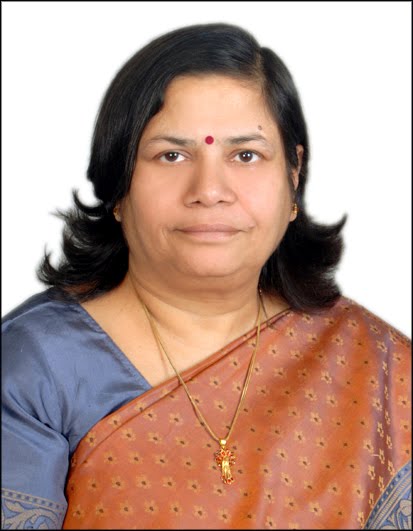The context
Digitalization has changed the very way we live, work and think. It is not just about something we do strategically or specifically, but the way we perceive ourselves and connect to the world around us. Even our language these days is structured by digital technologies. Ubiquitous like air, it is invisible but all-pervasive. Today we live in a world where the ‘virtual’ has drastically and rapidly overtaken the ‘real’. It has weakened territorial, racial, religious and other identities. As such, we need to redefine ourselves.
Today we are living in a world where global forces are simultaneously binding and tearing us apart. Earlier, people connected with others at familial, work and community level but with the advent of rapid globalization and technological innovations, we find cyberspace replacing the places of conviviality with ‘virtual’ communities. It has now become easy to connect with people on anytime; anywhere basis as the technology has become swift, convenient, interactive and affordable. Instead of being just a tool, it has become a condition we cannot live without.
How integrating, how disintegrating?
It is true that the use of modern technologies has helped in integrating with people placed at far off places instantly, but it is also true that too much addiction to Internet, face book, social media, twitter or u-tube has also played a pivotal role in drifting the users away from immediate family, neighborhood and community. It is a common sight to find the parents in their mid-thirties or forties glued to their laptops, templates or i-phones in a park or activity centers where their little ones might be playing some games, practicing art or gymnastics, waiting desperately to catch an approving nod or a friendly smile from their parents as onlookers.
There is no dearth of cases where the parents also feel frustrated when on their return from a tiring and exhausting day at work, they find their children too engrossed with electronic devices to greet them. Instead of spending time with their parents in the living room in the evenings, teenagers prefer to spend time online in isolation. Some children even prefer having working lunch or dinner in their own rooms while watching television or texting to other children of their age group from extended family, neighborhood or school. They are unable to enjoy and value family life off line!
It has affected not only the family life but also the interpersonal relationships at the societal level. Through the face book or social media, we might be aware of smallest political, musical or sport happening at the global life whereas we might be completely ignorant of a child birth next door or a death in the neighborhood. Just as a younger sister may find it difficult to reconcile to her brother’s love affair with a girl from a distant community, similarly immediate family members, especially the elderly parents or spouse, may find it hard if their son/daughter or life partner starts paying more attention to other members of extended family, friends or colleagues through recourse to technological networking at their cost. It can create feuds at the family and society level.
Pros and cons
It is true that technology has made an individual more independent than ever before. Today an individual can manage most of the domestic chores single handedly without mutual support from other family members, friends, neighbors or colleagues. It has made it possible for him/her to live in isolation, weakening the social and community fabric thereby. S/he may form short term alliances with other individual or groups at virtual communities but s/he cannot drive the same happiness or joy as gained through face to face interactions. There are some reports that suggest that some persons start abusing, trolling or engage in anti-social behavior to give a vent to their long suppressed feelings, such as anger, depression or frustration.
It is bound to aggravate disintegration at the family and society level. If a mother is too busy attending to her emails instead of listening to her child’s story about what happened at school on one particular day or if a dad is too busy watching the latest cricket or stock market scores on the Internet without paying any heed to his toddler’s call for higher and higher push at the swing, we cannot really blame the children for their apathy towards family affairs or lack of concentration in studies at school. If parents give priority to technology over their children’s needs, the children are bound to remain disconnected with family activities around them. In fact, they need undivided, technology-free attention for their emotional well being, development of a strong sense of trust and overall growth.
As such, technology should be seen only as a tool and should not be allowed to master us by making us rely and depend upon it too much. Some highly educated and professional parents are found using modern technological devices, such as television, tablets or i-phones as ‘baby-sitters’ while they are busy working from home, indulged in drawing room discussions or simply enjoying dinner. I know someone who gives i-phone to her 5 year old daughter with cartoons or animation films on while she is busy attending to her clients requiring full attention. She does not realise how harmful it could be for the child’s eyes and tender bones beside creating an emotional disconnect. Such children, too, learn very fast to find solace in the company of technological devices and feel lonely and isolated rest of their lives.
Impact on family relations
It is high time to take some preventive measures or adopt some cautious approach to curb the disintegrating effect of over-indulgence in modern technologies by children and adults alike. It is found that those children who are less supported by their parents spend more time on social-networking online. Children show remarkable quickness in absorbing the latest technology at a speed faster than their parents. Sometimes, parents and grandparents feel themselves as ‘technology-illiterates’. The lack of technological acumen or competencies makes them feel ‘inadequate’, resulting into the sense of ‘lack of authority’. Hence they are unable to regulate the use of modern technological devices by their children or grandchildren firmly or with confidence. They often find it below their dignity to learn how to use technological devices from their children. Earlier parents acted as mentors for their children’s socio-cultural behaviour. Now they feel at a loss in terms of connection with their own children!
Such parents have no choice but to leave children to themselves. Children take advantage of the situation where parents are either too engrossed in technology themselves or lack adequate technological competencies. Therefore, they are unable to enforce reasonable limits as an oversight. Children, too, start using technology for instant messaging, checking social media, listening to music, watching sports and films or surfing their favorite websites in cars, restaurants or family get-together instead of playing in gardens, interacting with their parents and grandparents or indulging in some other productive or creative activities which could be more rewarding in terms of long term bonding and sense of belonging. The dot.com generation only believes in logging on and logging off at one’s sweet will without having any sense of belonging, solidarity or publicness.
A wake up call
It is true that family life has changed a lot in the past 50 years. The size of the houses has grown by 50% and there are fewer occupants. Earlier I used to have just one black and white television set in my one bed room apartment despite a joint family consisting of my in-laws, my spouse and two children. We used to watch popular TV shows and Bollywood films together on Sundays. Now I live alone with my spouse in a four bed apartment with a television set in every room. I hardly watch the television programmes with my spouse as we have developed different tastes. Nor do the timings match our convenience or interests anymore. As such, we end up watching different programmes or movies at different channels and at different timings, feeling more independent but isolated than ever before. The ramifications of such distancing can be profound indeed. It is time for the ‘wake up call’.
Digital technology, like the telephone, television and other means of
communication earlier, can have integrating as well as disintegrating effects.
A few years ago we were drifting away from our extended families. Due to a lot
of work pressure only the immediate family got top priority and attention. Now
with the help of multimedia, very fast and cost-effective means of
communication, we have started reconnecting with our near and dear ones spread
all over the world. We can share special events and travel experiences through
email, digital cameras and camcorders. We can not only share visual experiences
but also learn a lot through digital technologies. These also allow us to
escape from our real selves and be someone else. It is possible to have
multiple identities to suit our mood and requirement but it can also encourage
fraudulent behavior. We should understand that technology has no intrinsic
value of its own. Much depends on how we use it and for what purpose.


